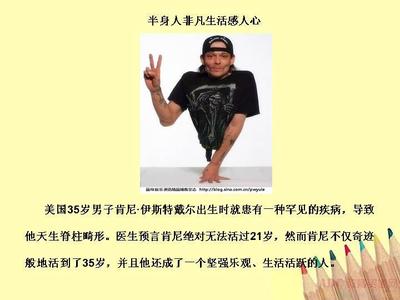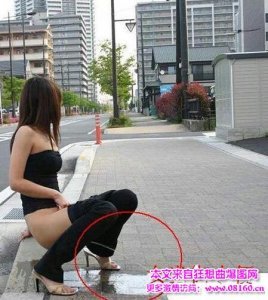十六世纪法国作家和思想家蒙田论人与人之间的差别,于今观之尤为恰当。在喧嚣浮躁的当代社会,拜金、拜官占据价值观主流,看马只看鞍,看人只看衫,已经远离生命价值真义。
我曾有一套由译林出版社组织翻译的三卷本《蒙田随笔》,可惜已然散佚。今从网上找来英文版(法文原本看不懂),试着摘译一小段。
************
论人与人之间的差别
作者:蒙田(1533-1592)
译者:知远察微
普鲁塔克在某处说过,他未尝发现兽与兽之间的差别达到人与人之间的差别那么大。他指的是生命的内在品质与灵魂的完美性。的确,我发现,伊巴密侬达(就我对他的判断而言)与我认识的一些人(他们都是思维正常之人)之间有着如此巨大的差距,以至于我要加重普鲁塔克的说法。我想说的是,人与人之间的差别,大于人与兽之间的差别。我还想说,天地之间有多少腕尺高,人与人之间的心智相差就有多么远。
然而,奇怪的是,人们对万物皆以其本身品质来评估价值,唯独对我们人类自身例外。我们称赞一匹马,赞的是它那有力而稳健的步态,而不是盛装的披挂。我们称赞一条猎兔狗,赞的是它那跑得飞快的足踵,而不是精美的项圈。我们称赞一只鹰隼,赞的是它的翅膀,而不是牵绳和脚铃。为什么我们在评价一个人时却不是以上述方式完全地依照他自身品质来衡量呢?他拥有成群的随从、华丽的宫殿、众多的荣誉、巨额的年金,所有这些都是关于他的,却不是他内在固有的。你不会买一头被蒙在袋子里的猪,同样,你若在买马时砍价,你会剥光马衣,让马赤裸无遮盖,尽现于眼前。倘如古时王公贵族挑选马匹那样,马是被马衣遮住的,则遮盖的也是次要部位,为的是不让你过于看重漂亮的毛色和宽阔的臀部,以集中注意力,检视腿部、眼睛和马蹄,这些才是最有用的部位。
为何在评价一个人时,你会把他严严实实地包裹在外衣之中?这么做,他表露出来的,唯有那些完全不是他自己本身固有的部分;而遮蔽起来的,则是可据以对他的价值作出正确判断的部分。为一把剑询价,你所探问的是剑身而非剑鞘的价值。由是,假若剥掉披在那个人身上的外衣,你也许连一个铜板的价都不愿意为他出。判断一个人要看人本身,而不是看他的穿戴。正如一位古人说的搞笑话:“你可知道,为何你觉得他高?那是因为,木屐的高度,你也加上去了!”塑像的底座不是塑像的一部分,给人量身高可别连人家脚下的高跷也一起量。让他丢下收入和头衔,穿着衬衣来。而后可以查验,看他的身体是否强壮、有活力、积极向上、功能健全。他有一颗怎样的灵魂?这颗灵魂是否美丽、有才华、能够愉快地履行她所应担当的一切?她的丰富多彩是自身所有,还是借来的光环?财富在这当中没起到作用吗?面对刀光剑影,这颗灵魂没有眨过眼吗?对于生命的消逝,无论是因病而故或是遭遇不测,她是否全然不惧?她是否沉静、平和、满足?所有这些,就是在评价一个人时要查看的项目,由此可以判断出人与人之间的巨大差别。贺拉斯有诗赞曰:
他是一位智者,善于自我管治
不惧贫穷与死亡,岂惮连串衰事
他有力量抵挡欲望,视荣誉如粪池
他内心自足而刚强,外界无从侵蚀
命运欲戏之于股掌,终须徒劳而止
这样的一个人,当高踞于王国和公国五百腕尺之上。在他的内心世界,对于他本人,他就是至高无上的君主。普劳图斯说:
智者是自己命运的主宰者
臻此境界,夫复何求?卢克莱修说:
难道我们不曾看到,人类天性所要求我们的
不外乎——
身体无病无痛,心灵无忧无虑
愉快享受人生
和这么一个人比较,相形之下,人类中那些平庸的泛泛之徒,愚昧无知、心胸狭窄、奴性十足、心神不定,永不停歇地漂浮在各种热情的骚动中,随波逐浪,全然仰赖于他人。真是天壤之别啊!可习惯上我们却是如此盲目,对此甚少在意或根本不在意。然而,如果我们观察农夫和国王、贵族和奴仆、官员和平民、富人和穷人,巨大的差别就显现出来,尽管有人会说,他们之间除了穿的裤子不同,并无大异。
(全文未完)
OF THE INEQUALITY AMOUNGST US
by Michel·de·Montaigne
Plutarch says somewhere that he does not find so greata difference betwixt beast and beast as he does betwixt man andman; which he says in reference to the internal qualities andperfections of the soul. And, in truth, I find so vast a distancebetwixt Epaminondas, according to my judgment of him, and some thatI know, who are yet men of good sense, that I could willinglyenhance upon Plutarch, and say that there is more differencebetwixt such and such a man than there is betwixt such a man andsuch a beast,and that there are as many and innumerable degrees ofmind as there are cubits betwixt this and heaven.
But as touching the estimate of men, 'tis strangethat, ourselves excepted, no other creature is esteemed beyond itsproper qualities; we commend a horse for his strength and surenessof foot, and not for his rich caparison; a greyhound for his speedof heels, not for his fine collar; a hawk for her wing, not for hergesses and bells. Why, in like manner, do we not value a man forwhat is properly his own? He has a great train, a beautiful palace,so much credit, so many thousand pounds a year: all these are abouthim, but not in him. You will not buy a pig in a poke: if youcheapen a horse, you will see him stripped of his housing-cloths,you will see him naked and open to your eye; or if he be clothed,as they anciently were wont to present them to princes to sell,'tis only on the less important parts, that you may not so muchconsider the beauty of his colour or the breadth of his crupper, asprincipally to examine his legs, eyes, and feet, which are themembers of greatest use.
why, in giving your estimate of a man, do you prizehim wrapped and muffled up in clothes? He then discovers nothing toyou but such parts as are not in the least his own, and concealsthose by which alone one may rightly judge of his value. 'Tis theprice of the blade that you inquire into, not of the scabbard: youwould not peradventure bid a farthing for him, if you saw himstripped. You are to judge him by himself and not by what he wears;and, as one of the ancients very pleasantly said: "Do you know whyyou repute him tall? You reckon withal the height of his pattens."The pedestal is no part of the statue. Measure him without hisstilts; let him lay aside his revenues and his titles; let himpresent himself in his shirt. Then examine if his body be sound andsprightly, active and disposed to perform its functions. What soulhas he? Is she beautiful, capable, and happily provided of all herfaculties? Is she rich of what is her own, or of what she hasborrowed? Has fortune no hand in the affair? Can she, withoutwinking, stand the lightning of swords? Is she indifferent whetherher life expire by the mouth or through the throat? Is she settled,even and content? This is what is to be examined, and by that youare to judge of the vast differences betwixt man and man. Ishe:
The wise man, self-governed, whom neither poverty, nordeath,
nor chains affright: who has the strength to resist hisappetites
and to contemn honours: who is wholly self-contained: whomno
external objects affect: whom fortune assails in vain.

——Horace
such a man is five hundred cubits above kingdoms andduchies; he is an absolute monarch in and to himself:
The wise man is the master of his own fortune
——Plautus
what remains for him to covet or desire?
Do we not see that human nature asks no more for itselfthan
that, free from bodily pain, it may exercise its mindagreeably,
exempt from care and fear.
——Lucretius
Compare with such a one the common rabble of mankind,stupid and mean-spirited, servile, instable, and continuallyfloating with the tempest of various passions, that tosses andtumbles them to and fro, and all depending upon others, and youwill find a greater distance than betwixt heaven and earth; and yetthe blindness of common usage is such that we make little or noaccount of it; whereas if we consider a peasant and a king, anobleman and a vassal, a magistrate and a private man, a rich manand a poor, there appears a vast disparity, though they differ nomore, as a man may say, than in their breeches.
************
注释:
普鲁塔克(Plutarch,公元46-120),古罗马用希腊文写作的传记文学家,传世之作为《希腊罗马名人传》和《掌故清谈录》。
伊巴密浓达(Epaminondas,又译埃帕米农达,公元前418-前362),古希腊城邦底比斯的将军与政治家。其领导底比斯脱离斯巴达的控制,并且使底比斯跃升为一等强国。
贺拉斯(Quintus Horatius Flaccus,公元前65—前8),古罗马诗人、批评家,其美学思想见于写给皮索父子的诗体长信《诗艺》。
卢克莱修(Carus Lucretius,约前99~前55),古罗马哲学家。
普劳图斯(Plautus,公元前254?-前184),古罗马第一个有完整作品传世的喜剧作家,其代表作有《俘虏》、《一坛金子》等。
 爱华网
爱华网



